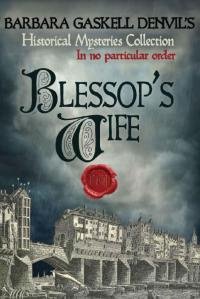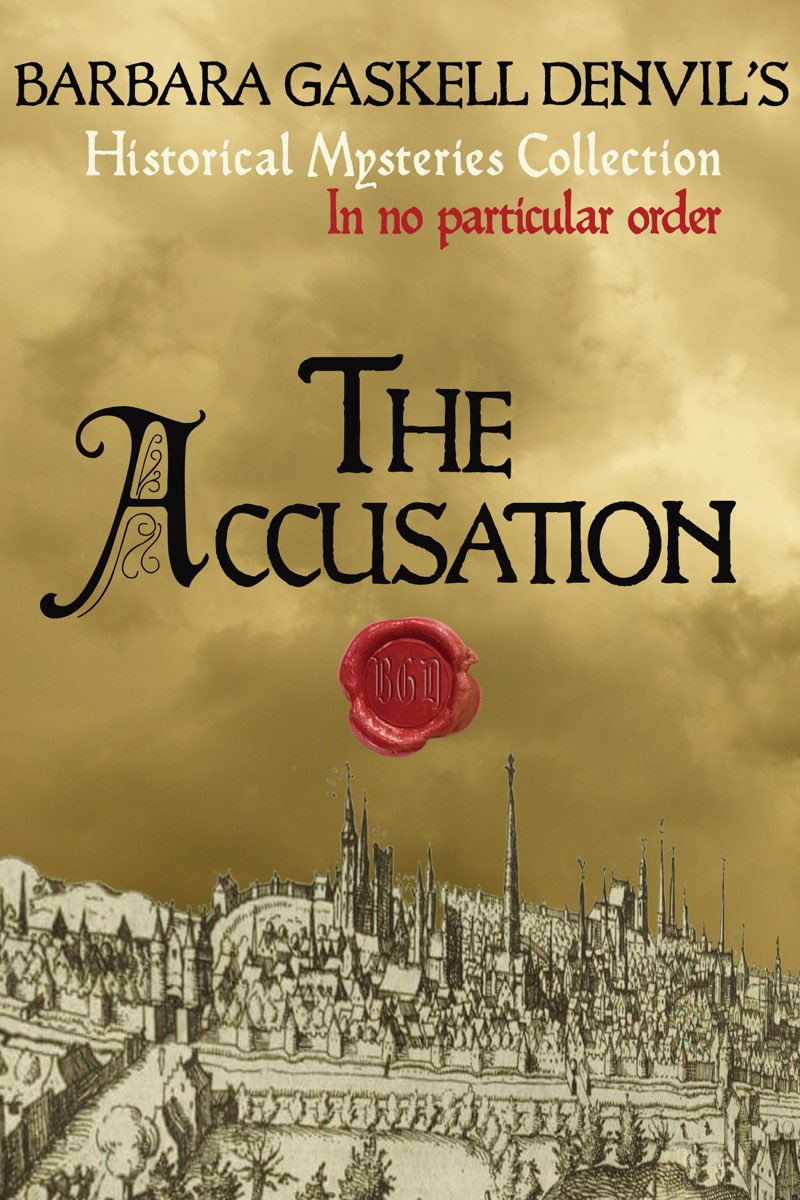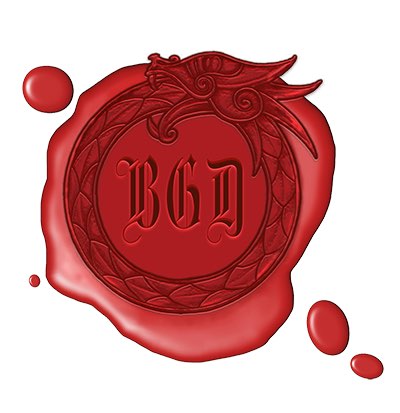I t was raining. It always seemed to be raining.
But the rain would not wash away the blood from her neck and her shoulders. He had seen executions before. Each different, for some were afraid and others proud, arrogant and defiant. Some refused the blindfold, Others accepted the hood. One, a young man who did not deserved his death, was killed with an axe half sharp and wielded by a weak hand. The man's neck, hacked as a child might try to chop wood, He could not scream because his throat was open to the winds, but the battered agony shone through his eyes. Some vomited. His mother had fainted.
Now he rode through the night, having given his oath and would keep it. He'd promised to stand at the edge of the scaffold and to look into her face, and had sworn to smile as the Countess of Harrington lowered her head to the block. She asked for the last thing she saw to be his smile. And that he help her daughter, lead the girl away from the carnage, and talk to her until she understood.
Charles was late. There had been footpads. It had been an unfortunate delay.
He pulled his hood up, wrapped the oiled cape tighter around his shoulders, urged his mare onwards with promises of turnips and dry oats once they arrived, and plodded onwards down the lane, mud squelching like the ooze of blood from his own thigh, dripping now to his boots amongst the slick of rain. Red rain puddling the stirrup.
The sun was westing behind the rain clouds, and the long twilight slithered from the black silhouettes of the trees. It would be dawn before he arrived, but riding through the night was something he had become accustomed to during the last four years since Mary had taken the throne.
The footpads had been a complication. Both had died but he had taken a knife point in the thigh and the drain of blood further weakened him. With some sympathy for the two robbers he'd killed, for the poor and the hungry had few resources in these days of dismal harvests, the resulting famine, and the miserable hatred for the people's queen, he had killed them quickly. Yet not quick enough to avoid his own injury.
Charles smiled at himself and shrugged, dislodging the rain which collected in the brim of his hood.
Still raining.
It rained through summer, autumn, winter and spring of all the years of the queen's reign. Crops were ruined, but it had not rained hard enough to put out the fires. The burnings continued. God, it seemed, punished both Protestants through the fires at the stake, and the Catholics too through the failed harvests and the endless sobbing hunger.
His mother's friend, the Countess of Harrington, was no Catholic and no spy. She had not plotted to put the queen's sister on the throne, and she had not plotted for anything except a peaceful life for herself and her family. Yet distrust and dislike were their own condemnation. They said the queen was pregnant. Charles hoped the child would resemble neither of its parents.
The stars blinked out in the cloud-free patches behind the rain. No moon salvaged its aura, and the darkness, although star pricked, tumbled into black rime.
Soaked and tired, Charles lessened speed, but for his mare and not for himself. Softly, he began to sing. In the rain, the words fell shallow and flat. Once he dozed, falling half into dream. Absurdly, it had been a dream of delights and pleasures, but within moments he woke, and ensured that he did not sleep again.
It was past dawn when he arrived at the Tower. He rode over the drawbridge and beneath the raised portcullis. He was known well enough and would not be stopped. Ellen, Countess of Harington stood before the block. She stared down at the ring of straw laid to catch the blood. The wooden block was stained. She refused the blindfold and stood in simple grey, the white collar removed so that her neck remained naked for the axe. Charles stood directly below and where she could see him. Close enough to ruin his doublet with blood spatter, but it would merge with his own blood and did not concern him.
Standing very still, for otherwise it showed cowardice and fear, she spoke her last words. The shadows streaked down from battlements to bailey and darkened as they crossed those from the chapel, turning her blue eyes black. The countess had seen Charles. "I declare my innocence of all charges, but I ask the Lord God to bless my sweet queen." Charles smiled. It was what she had wanted. "I also ask," she continued, looking straight at him, "that my daughter be exonerated from all blame in my death, and accept it as a release for us both."
The girl stood back, clutching her nurse's arm. She looked down and not at her mother. Her face was tear smudged. Charles gazed steadily at the countess, and nodded briefly. She knelt and laid her neck across the block.
A clean cut.
He smelled her urine and her blood and moved back. The axeman lifted the head by the hair, and showed it to the small crowd. Crossing immediately to the countess's daughter, Charles murmured, "Do you remember me, Katherine? Then come with me now."
He took her shoulders, moving her towards him. It surprised him to feel the physical pleasure and the sudden emotional sympathy, for he had never liked her previously. But now her body trembled with wretched sobbing, and her breasts pressed against his arm.
"My mother told me you'd come. I didn't think you would."
"I'm taking you to the city manor as she wished."
Katherine looked up. "I have a choice?"
"Not really." Charles looked back to the block. The crowd had dispersed, but there had only been ten of them, a handful of officials, a smaller handful of the curious, the servants, Katherine and himself. "Your personal possessions have been taken to the house since your family property now belongs to the crown." He nodded to the nurse, who once again took Katherine's arm. Charles turned back again to the block. The body, a limp rag in blood soaked grey, the neck, a gristle torn and ravaged mess of broken bone and tumbling veins. A woman was on her knees, scrubbing the block as a boy gathered up the soiled straw from the base.
They could hear a roar of hunger from the menagerie, lions perhaps, seeing the approach of their keeper.
"You will, I presume," Katherine whispered, "soon "return to your country estate, my lord?"
He had never liked her either, but he had last seen her at twelve years of age, when he was twenty. Now she was, he supposed, seventeen. Her father long dead, her mother and brother executed, no doubt her childish sulks were now over. His own arrogance, he smiled, should also have faded. The monstrous parcel of bitter destruction in his own family had left him absurdly wealthy but almost entirely alone.
Saying simply, "I will escort you and your nurse to my home," he untethered his horse and led it by the bridle, back out into the bustle of London's streets.





